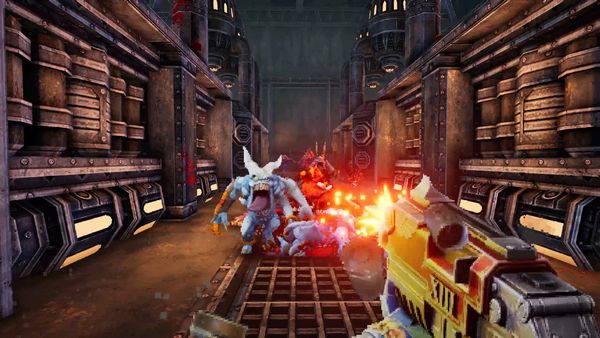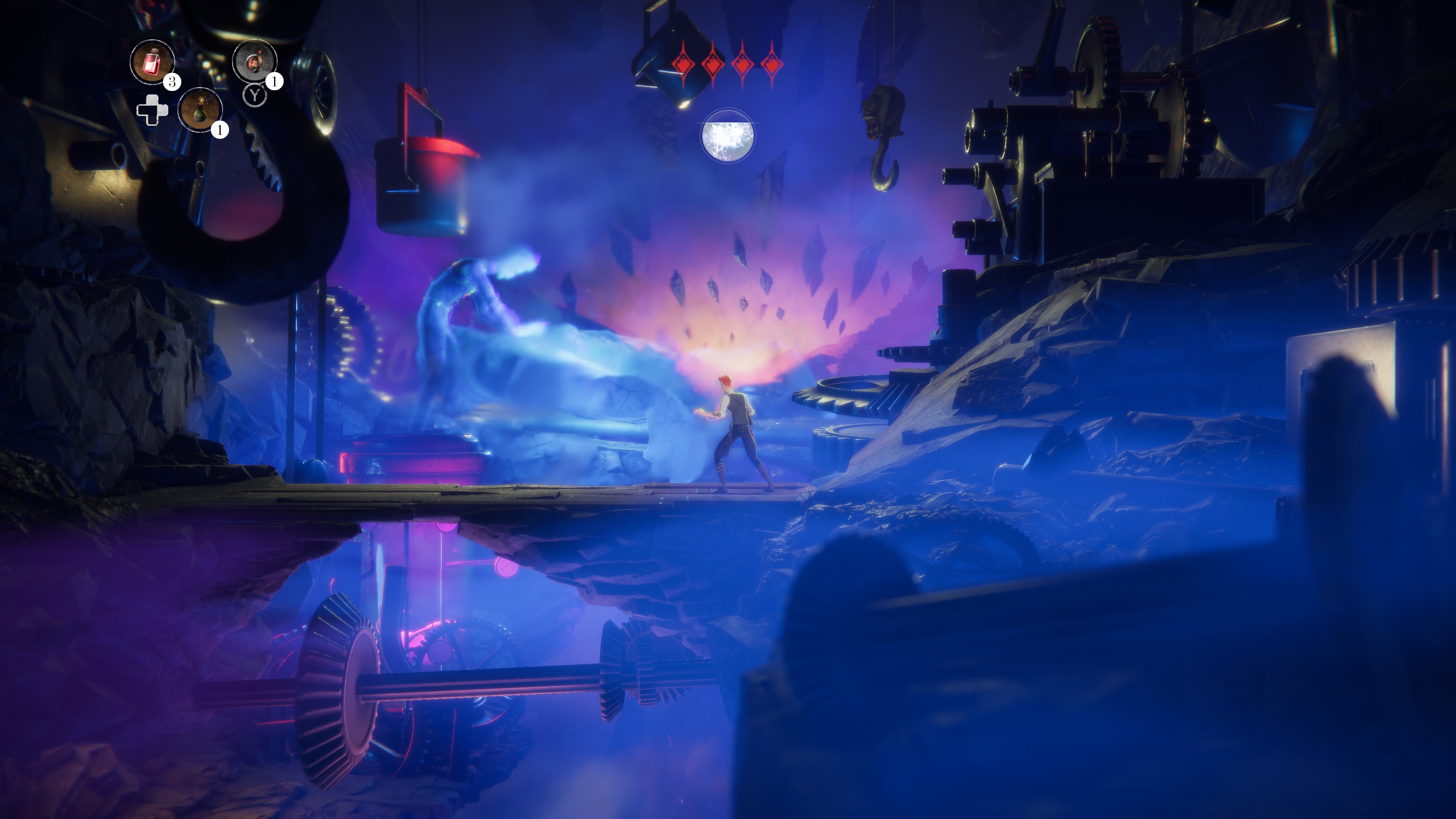
Xbox is a fantastic platform to experience some of the most creative, innovate indie games in the industry, especially since many of them land on Xbox Game Pass. One of the most anticipated indie games of early 2023 was The Last Case of Benedict Fox from Rogue Games, a gorgeous Metroidvania centered around multilayered supernatural mysteries and a detective desperate to unravel them all.
I couldn't wait to dive into The Last Case of Benedict Fox after completing Star Wars Jedi: Survivor, but I was dismayed to discover that this game couldn't hope to live up to my expectations. While there are many signs of an incredible game hidden in Benedict Fox's journey, they're buried under the flaws of the core gameplay and egregious performance issues. Follow me into the Limbo, and I'll tell you about it.
Gameplay flawed at its core hurts the whole game
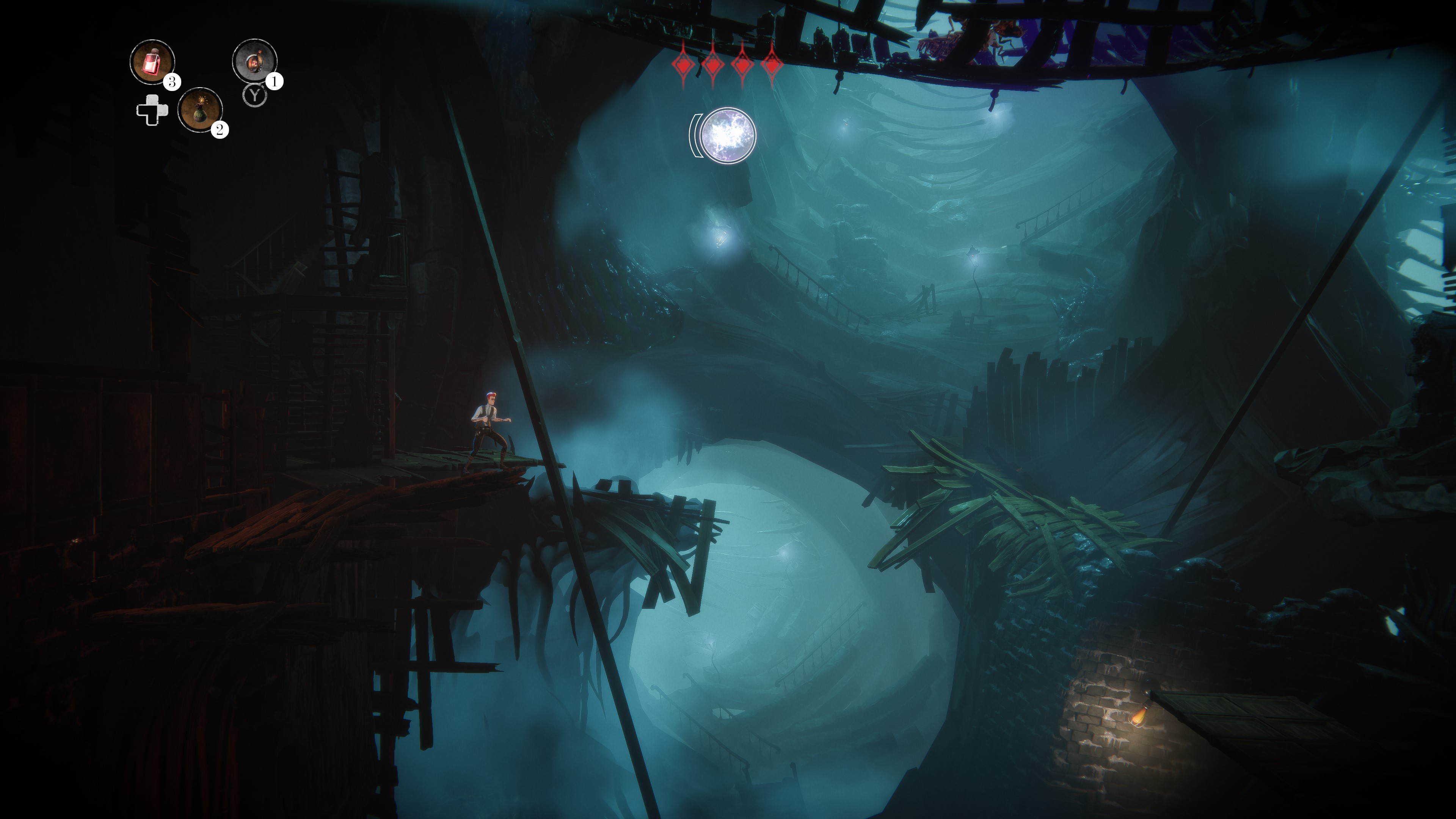
The Last Case of Benedict Fox's core gameplay essentially boils down to three main elements: platforming, combat, and puzzle-solving. All three of these mechanics have their issues, but it's the former two that are the source of constant frustration and disappointment infesting the soul of this game.
Platforming is an integral part of the Metroidvania genre, but The Last Case of Benedict Fox feels woefully imprecise. Taking the same jump a dozen times could result in a different outcome every time, with both the distance Benedict jumps and the duration for which he's in the air seemingly changing at random. The double and triple jump mechanics are also tied to a grapple ability, not Benedict's inherent athleticism, so that means relying on the dynamic grapple points appearing exactly when and where you need them (and that's hardly guaranteed).
The Last Case of Benedict Fox is dragged down by poor platforming, combat, and performance.
The end result is platforming that feels okay for navigating the map, but that isn't nearly refined enough for the challenging, high-precision platforming of other incredible platformers like Ori and the Will of the Wisps. Basically, the platforming depends more on the game than it does on your skill. Unfortunately, there are two forced platforming sections in the main story of The Last Case of Benedict Fox, with both sections relying entirely on the platforming mechanics offering the consistency and precision they just don't.
It was during these sections that I experienced the greatest bouts of intense frustration with the game simply not responding the way I wanted, and that's without addressing the other issues with these sections. The first section looks and plays like a cheap endless runner mobile game; the second is plagued by haphazard and unclear level design, forcing you to fumble your way through via trial and error (and any error means death, so expect a lot of failed attempts).

While the two abysmal forced platforming sections aim to instantly dishearten you in one fell swoop, the combat in The Last Case of Benedict Fox is more akin to death by a thousand annoyances. For a game with a surprising amount of combat, the combat is never fun or feels good to play.
The basic controls of parrying, attacking, and shooting are fine, but are quickly cluttered with an endless parade of confusingly controlled abilities. It's the timing that truly ruins the combat, though, with subtle input lag, inconsistent telegraphing of attacks, and a bizarre delayed animation for parrying that makes all combat feel like a roll of the die rather than a display of acquired skill. Benedict Fox is extremely fragile as well, making combat very punishing if you don't do everything perfect every time.
You can certainly improve your chances by unlocking and upgrading consumables, earning new abilities, improving your weapons, and increasing your health, but none of it disguises the fact that, at its core, The Last Case of Benedict Fox doesn't feel like a game that needs this form of combat at all. At the very least, don't make direct combat a core pillar of your game unless the foundational mechanics feel responsive and consistent.

On top of all of this, though, The Last Case of Benedict Fox performs like a game months away from release, not a game that has been in the hands of players for weeks. On Xbox Series X, I experienced dozens of dropped frames, stutters, too-long loading times, and more. In Quality Mode, every single time I approached any interactive object or area would be met with a two-to-three second freeze. Performance Mode admittedly was much better overall, but I still experienced a bevy of egregious issues, including one moment when the game ran at less than one frame per second for over two minutes. One frame per second.
Performance on the Xbox Series X was terrible, but it's apparently even worse on older consoles.
This is the experience with the most powerful Xbox console you can buy. Apparently, those on Xbox One experienced considerably worse performance, with many reviews mentioning hard game crashes that resulted in hours of lost progress. If at any point during my playthrough had I experienced such a crash, I can assure you I would not have pushed through and finished the game like I did. Many may have rightfully lambasted Star Wars Jedi: Survivor for its well-documented performance issues, but I 100% both games and can confidently state that The Last Case of Benedict Fox is overall a worse performing title.
I can't adequately express my disappointment in The Last Case of Benedict Fox, as it's deepened by all the wondrous potential that's here. As I mentioned before, I didn't just play this game for a few hours to give you my impressions. I didn't even just finish the game. I 100% it and its Achievements, and found enough good here that I can't say I hated my time with the game. But when your platforming, combat, and performance is all terrible, what else is there?
Saved by settings and a stunning setting
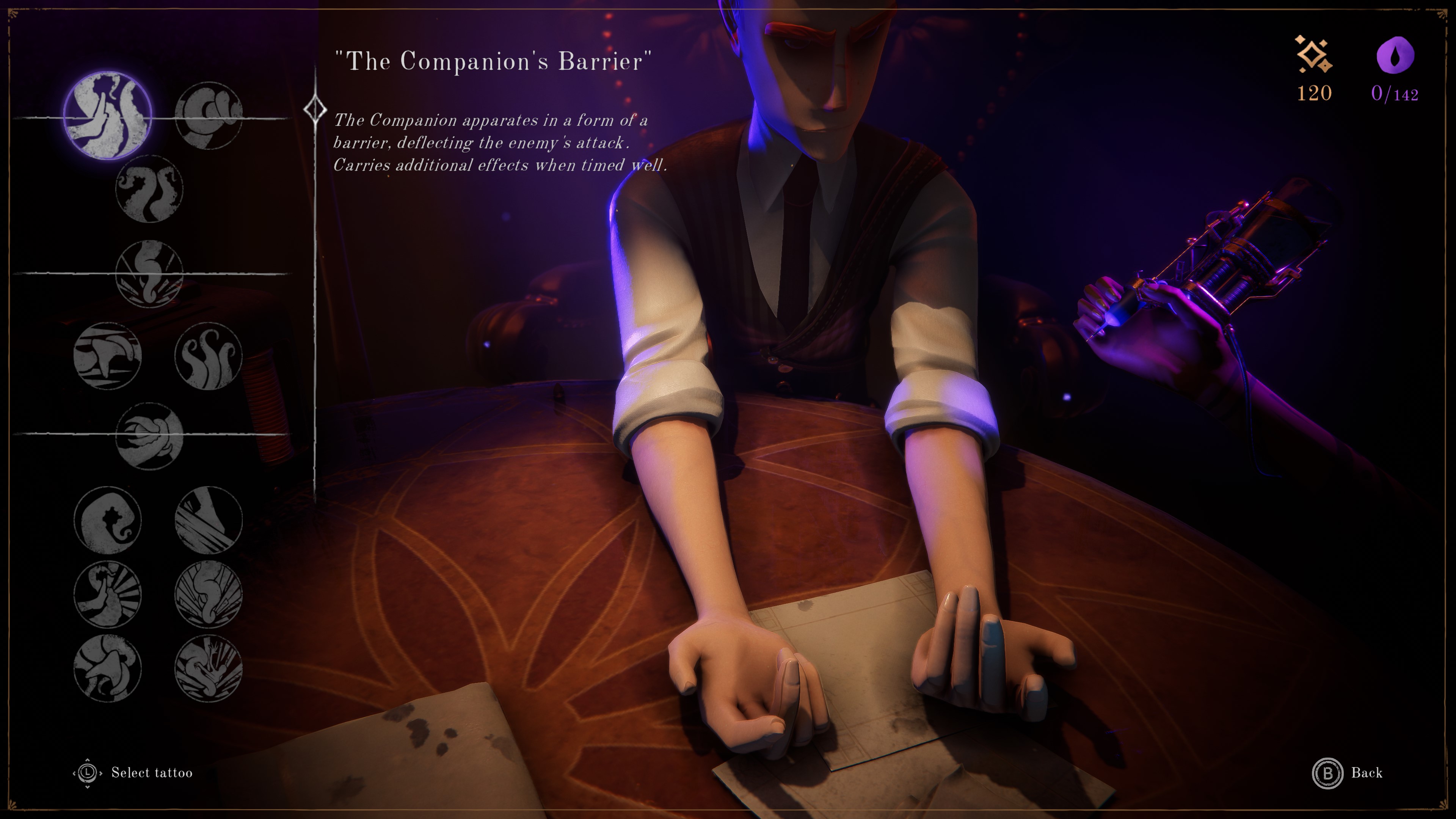
There's unfortunately nothing you can do about the platforming in The Last Case of Benedict Fox, but you can at least help the combat feel less frustrating and improve other aspects of the game with three accessibility settings. If you want to play this game, this is how I played through the second half of the game (and it greatly improved my enjoyment). Just a note: you'll need to actually start the game before these settings appear, for some reason.
Firstly, set the combat difficulty to "Relaxed." You'll still need to learn the abilities of the various enemies, and you'll still have to contend with the awkward and inconsistent timing, but enemies in general will have far less health, making the whole affair less annoying. This setting was basically essential for me to be able to finish the game without pulling my hair out.
Secondly, set the exploration difficulty to "I don't like exploring." I despise how this setting is named, though, because this setting does not actually have anything to do with exploration. You'll still need to explore the map, gradually unlocking new areas with your abilities and knowledge. What this setting does is mark areas of the map in red if there's something you missed in the area and mark entrances to unexplored areas with what is blocking your progress. You know, things that should've just been default?
There are some settings that greatly improve The Last Case of Benedict Fox, but it's still not enough.
I have no qualms with exploration in games (actually, I love it). What I do take issue with is a game deciding you have to reexplore every area any time you're lost because it doesn't give you any hint if you missed anything or if there's an area you may now be able to investigate. These maps are massive, and you can spend hours retracing your steps without finding anything new.
Finally, set the puzzle difficulty to "I don't like puzzles." I again don't like how this is named, because it doesn't make puzzles easier or give you hints — it just gives you a button to auto solve a puzzle if you have all the knowledge or pieces necessary. I didn't use this button to actually auto solve puzzles, though, I just used it to figure out if I could solve a puzzle after attempting to do so, because (as I mentioned before), the game does not give you any indication whatsoever that a puzzle is unsolvable with your current knowledge. If I failed to solve a puzzle, I'd hit the button, be told I don't have what I need, and then move on until I found what I was missing.
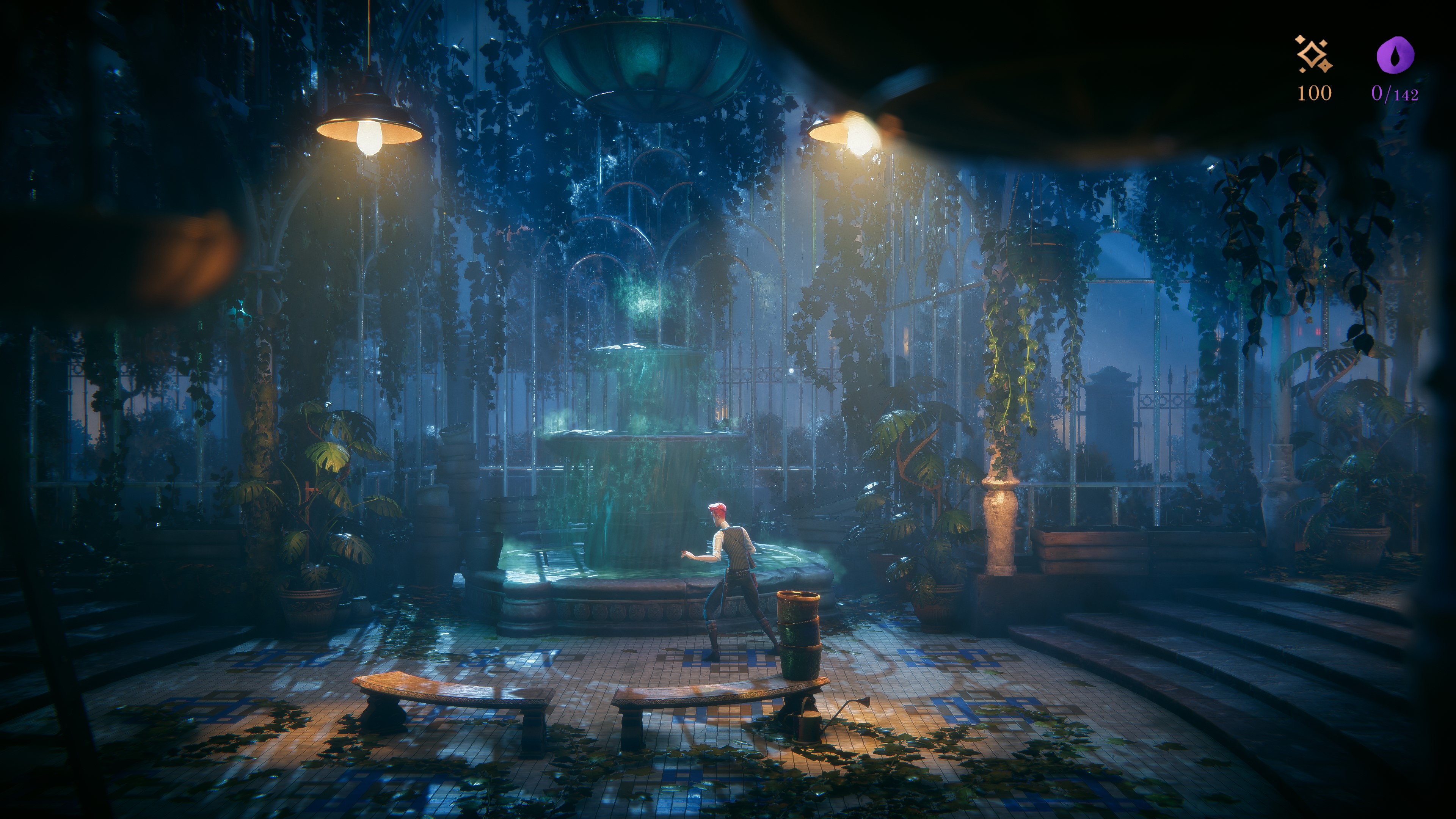
These settings don't fix all the issues with The Last Case of Benedict Fox, and they certainly don't address the terrible performance, but it did make a big difference. I spent less time ceaselessly annoyed with the game and more time enjoying what's truly wonderful about this game. Rogue Games has built a tantalizing alternative to our world, in which supernatural powers like witchcraft are real. The world is dominated by people who command these powers, with warring organizations dividing the people and exercising their authority in different ways.
Benedict Fox is torn between these organizations, the result of illegal and brutal experimentation that ostracizes him from all of society. He has tracked down his father with the intention of undoing the ritual that caused his existence and binds him to an otherworldly entity known as the Companion, who gives Benedict many of his powers. He discovers his father and his father's wife recently deceased, though, and must dive into the remains of their fading minds to solve the mystery behind Benedict's past, his father's death, and the whereabouts of the missing ritual.
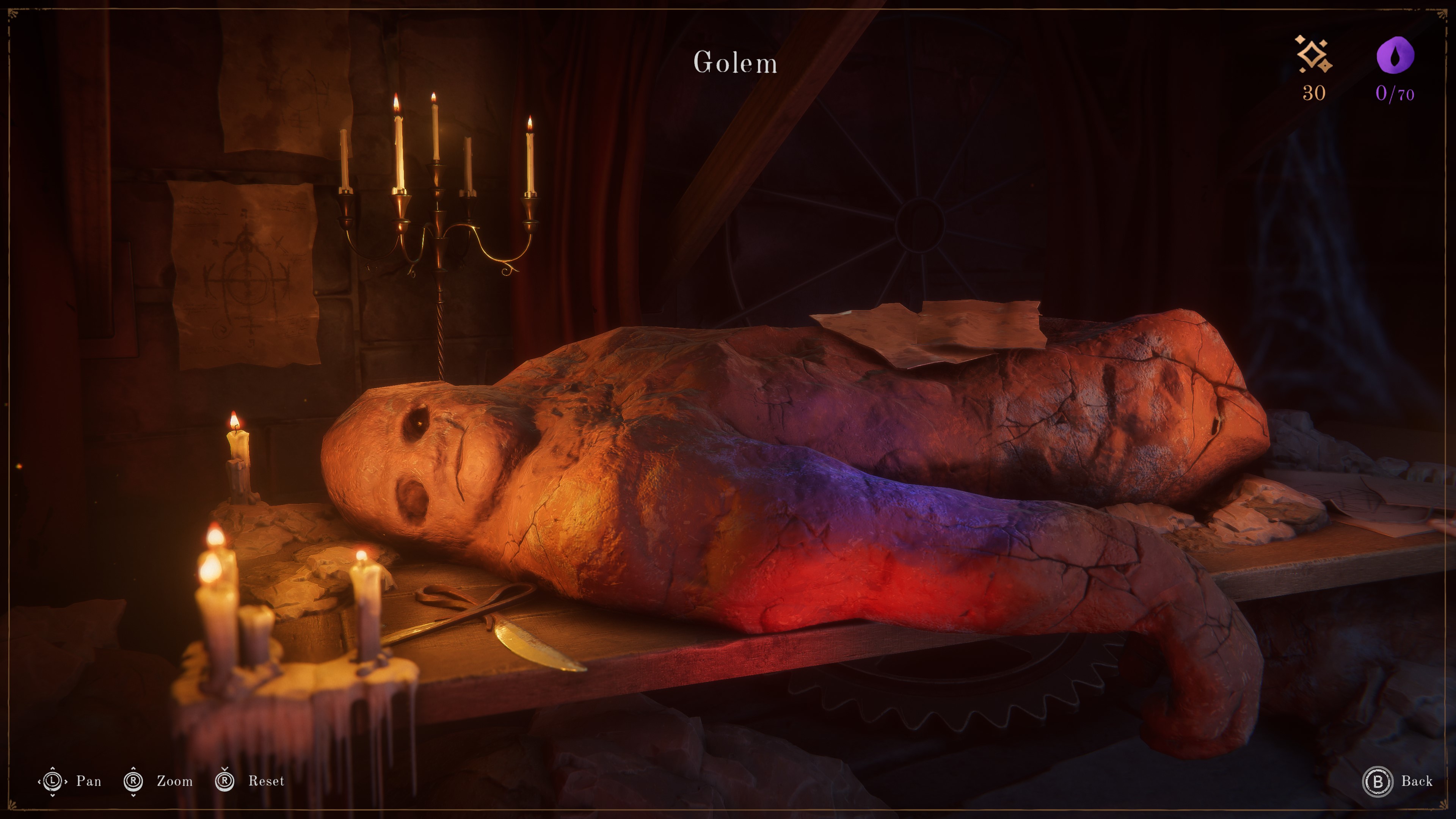
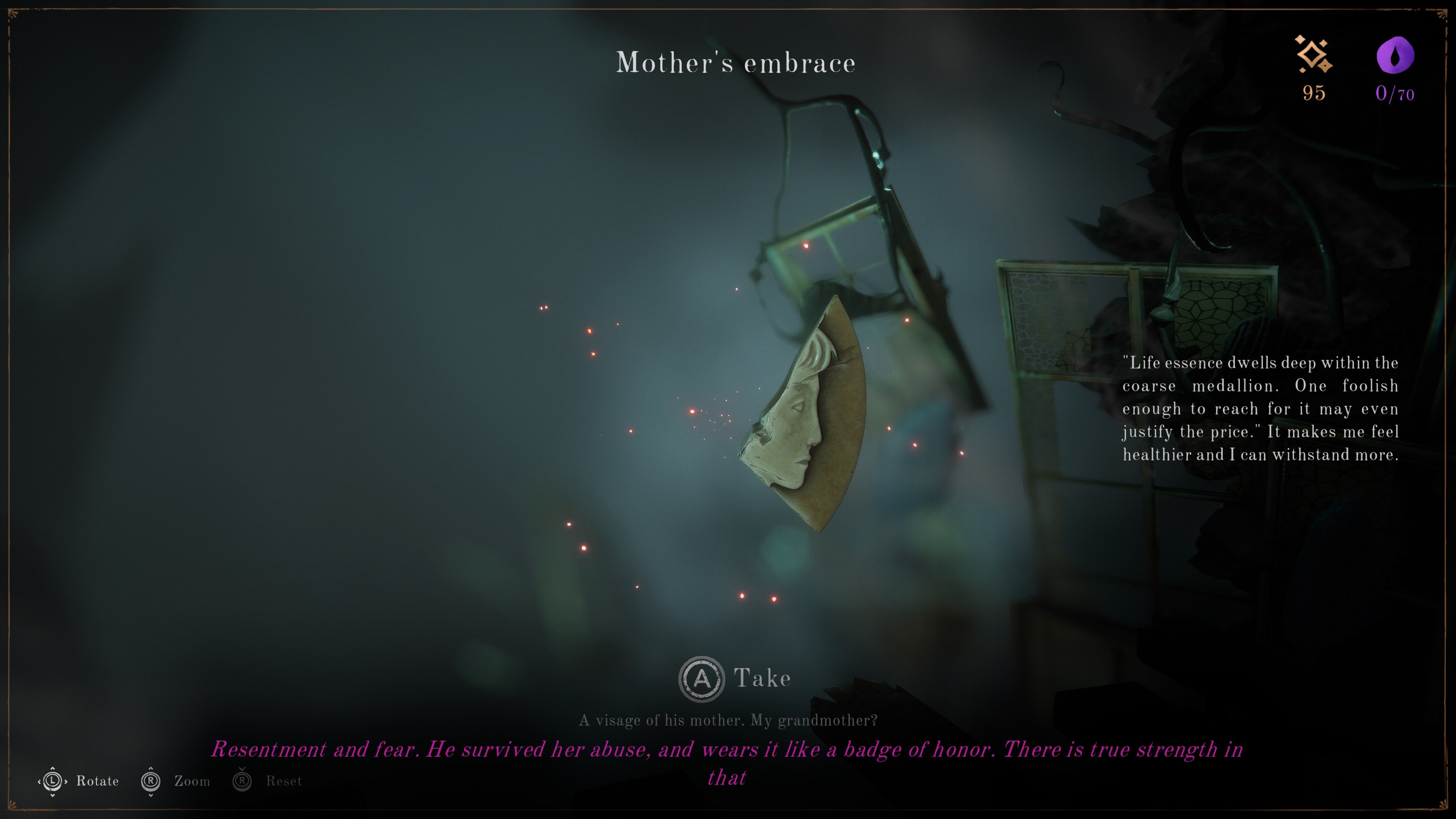
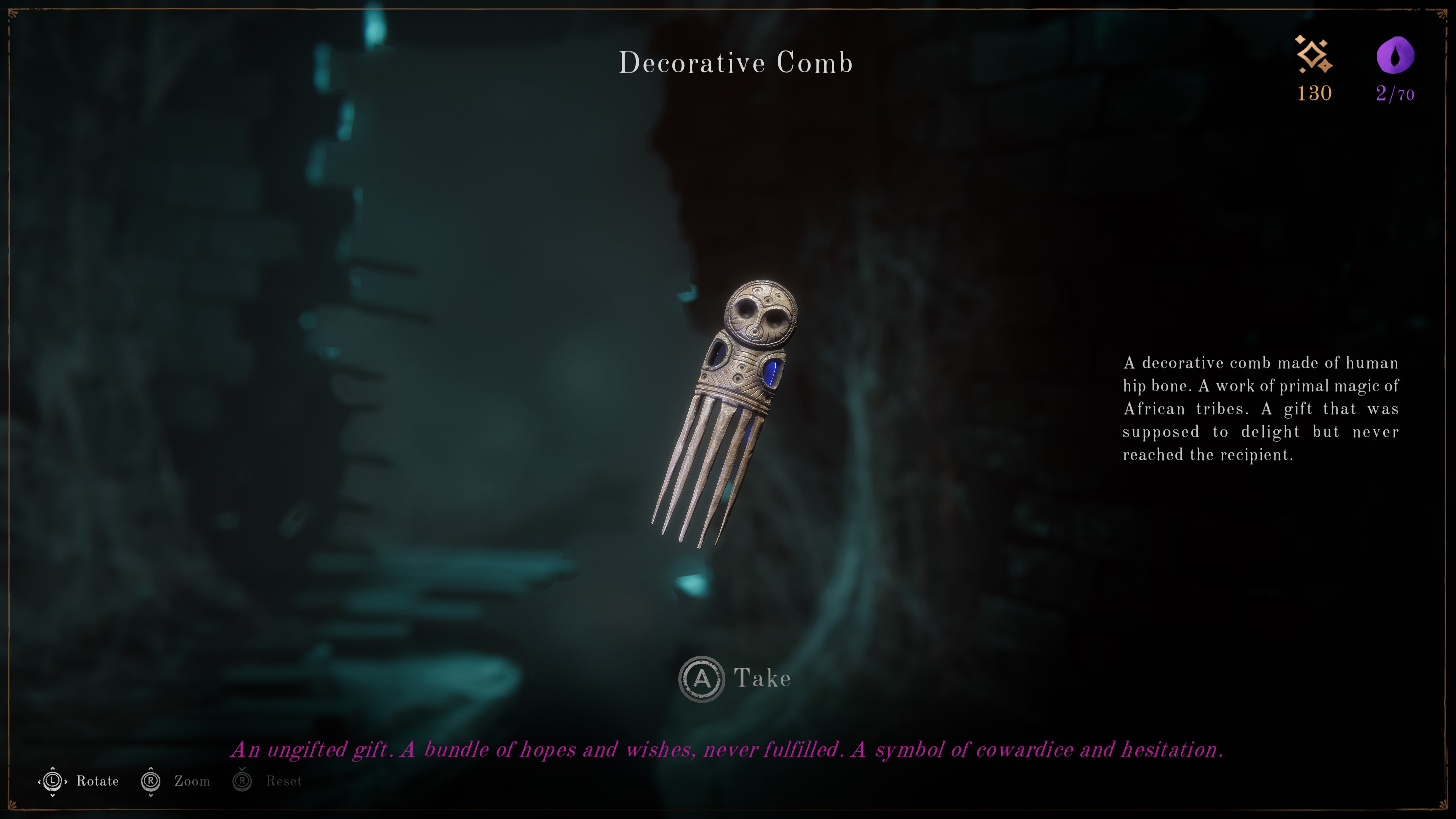
There's an incredible story and surrounding world here, if you can see it past the disappointing gameplay.
To do so, Benedict has to explore Limbo, an in-between place considered to be tantamount to Hell by one of the two biggest supernatural organizations dividing the world. His father's consciousness is trapped in the Limbo, along with all his memories and emotions, and Benedict must explore this harrowing place to find the answers he needs. There's so much lore buried in this game, so many reasons to dive into the world Rogue Games has crafted. On top of that, The Last Case of Benedict Fox is stunning, with some incredible visuals and environments.
The voice acting is awkward and the writing isn't always the best, but there is a lot to love about the narrative of The Last Case of Benedict Fox. It tackles familial trauma, mental health, the eternal struggle with inner demons, and much more, all through the medium that is the Limbo, a physical embodiment of all these things. It's all of this that kept me interested enough in The Last Case of Benedict Fox to keep playing until the end, even when the actual act of playing often wasn't very fun.
A last case worth experiencing... Eventually
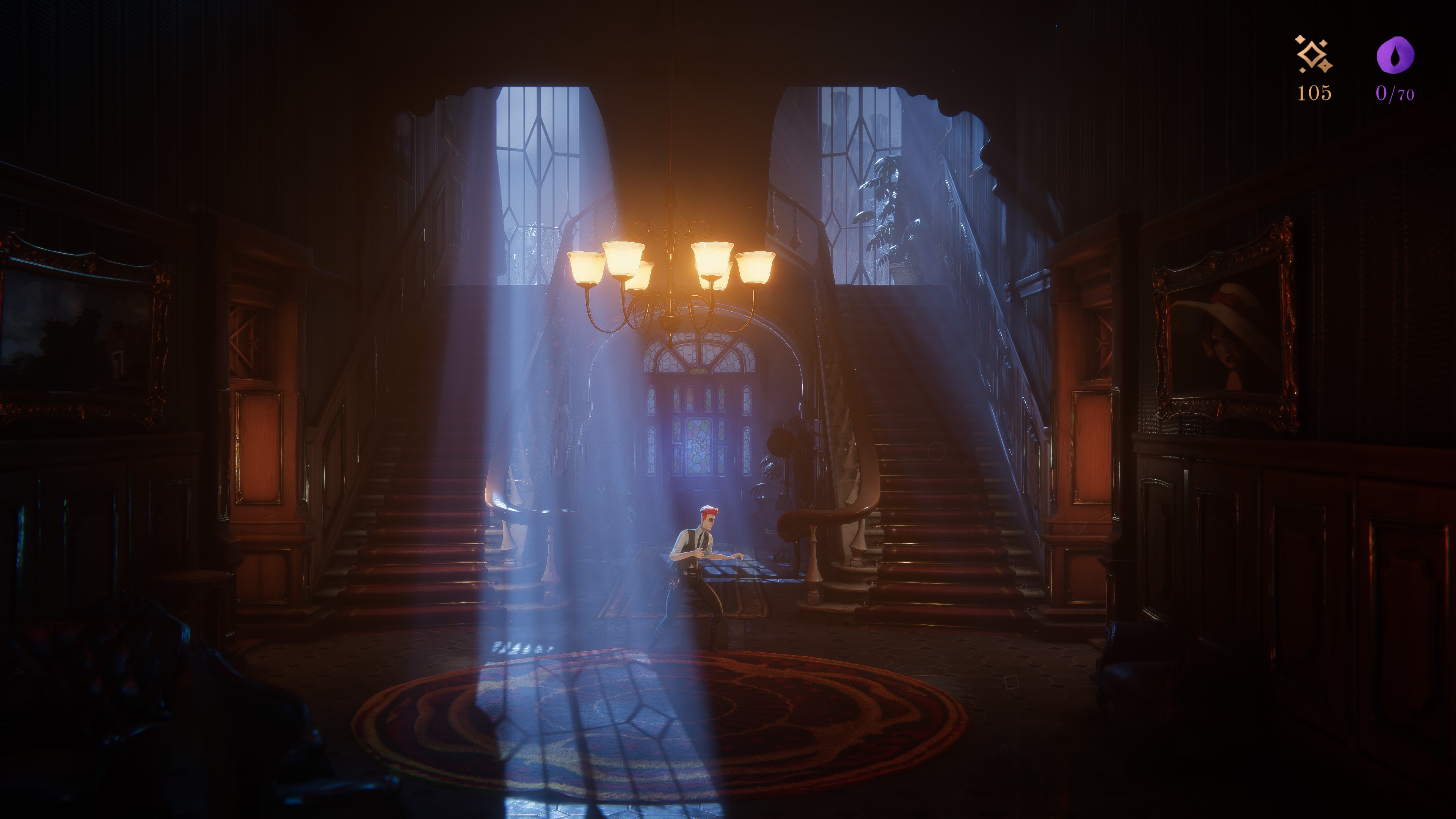
I really wanted to love The Last Case of Benedict Fox. For months I have been waiting for this Xbox indie with tangible anticipation, but the game I finished just couldn't approach my levels of expectation. My journey as Benedict Fox began with overwhelming curiosity to explore a new world, followed by incessant frustration that drowned out any sense of excitement, before finally, gradually melting into an overall feeling of appreciation for all the little things The Last Case of Benedict Fox gets right, despite the few major things it does wrong.
And it's true, The Last Case of Benedict Fox does plenty of things well. This is a fabulously detailed and macabre world, and it's so easy to get lost in it; the environments and visuals that bring that world to life are stunningly rendered. There are plenty of intriguing puzzles to solve and mysteries to unravel, too, even if the base gameplay mechanics that make up the game's core lack the polish necessary to pull it all together. Unfortunately, the genuinely abysmal performance is the rotten cherry on the cake that seals Benedict Fox's fate.
Ultimately, this game's saving grace is that it's a part of Xbox Game Pass. No, it's not joining our list of the best Xbox games any time soon, but this game can still offer 10 or so hours of fun as long as you take into account the advice I highlighted above. I don't regret playing The Last Case of Benedict Fox by any means, but I simply can't overlook its flaws. Before you dip into the foreboding Limbo with your otherworldly Companion, though, I suggest waiting for a performance patch.
At least Diablo 4 is right around the corner.








